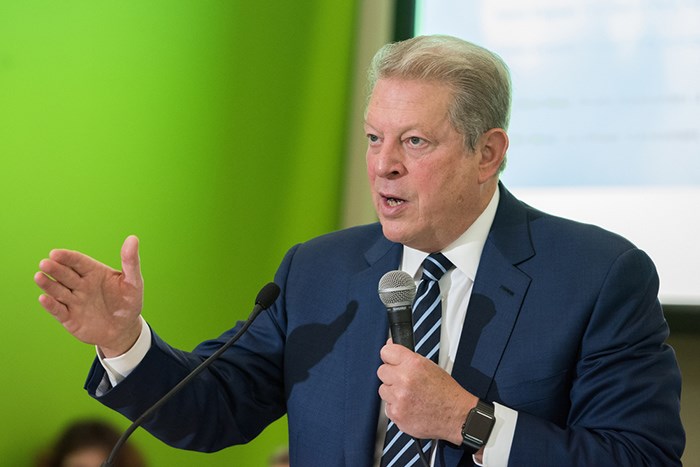CARDEN FIELD NATURALISTS
********************
“The Climate Reality Project” was the title of a presentation given at the Carden Field Naturalists meeting held at the Carden Community Centre on Aug. 14.
Two very dedicated and qualified speakers gave a detailed slide/talk on the effects and statistics of our climate changes, disturbances, and extreme weather events.
Deborah Pearson and Ginny Colling both enjoyed long careers in education; Pearson with Trillium Lakelands District School Board and Colling in the Journalism Program at Durham College.
They have served on the City of Kawartha Lakes Environmental Advisory Committee and the Healthy Environment Plan working group that produced a climate action and adaptation plan in 2018 for the City. They are also part of the Kawartha Climate Hub based in Peterborough.
This talk was informed by the Climate Reality Project leadership training led by former Vice President and Nobel Laureate, Al Gore in which they participated in 2017. Since then they have been making Climate Change presentations to community and school groups in the Kawarthas and Durham Region.
From a wealth of data comparing climate over millenia, the talk concentrated on the implications for our near future - which are profound. As anomalies to weather have become so frequent and extreme, we can’t say what’s normal anymore.
Extreme heat is more deadly than violent storms; 90 people died of heat in Quebec last July. There are heat waves in the Alaskan and Siberian Arctics in winter, and fires (right now) in the summer.
The fires send more emissions, especially methane gas, into the atmosphere causing more heat and fires in a feedback loop. Europe is experiencing unprecedented 44 degree temperatures; and Canada is warming twice as fast as the rest of the world.
Ontario farmers have been hard-pressed: 2016 was too dry, 2017 was too wet, 2018 was too hot and dry. It is hard to farm successfully with such unpredictable seasons. And then there is the flooding!
Warmer air can hold more water vapour, with resultant flooding from huge downpours which overwhelm the infrastructures we have in place. 14 billion litres of water came down over one night in Peterborough flooding it.
There is a heavy cost to plants and animals as they try to adjust to these changes and lessening of their habitable areas - and do so in such a very short time.
The number of at-risk animals and birds keeps climbing. We may lose our loons - and our maple sugar trees. There is also a huge financial cost already from these extreme weather events: the Insurance payments alone have amounted to $653 billion paid out for climate disruptions.
We were told that this climate crisis needs us all to pull together much like the war efforts of the past required everyone to do their part. And we each can. As a poster said, we can “Be less fuelish”: walk, take transit, fly less, use off-peak electricity, retrofit home for greater energy efficiency, eat more plant-based diet, divest investments from oil, plant trees - and support strong and rapid government action.
A tax on carbon is supported by the Business Council of Canada and the Canadian Chamber of Commerce. Since coal plants were closed in Ontario, we’ve had no more “smog day” warnings.
The federal Liberal government stepped in to fund the tree planting program cancelled by the Ontario PC government. One hundred cities worldwide are powered by renewables; Kawartha Lakes has a Healthy Environment Plan; Newmarket will have the first electric bus assembly plant - and an Uxbridge farmer has a solar-powered tractor!
The information presented was impressive and daunting, but did show us that we must consider the impact on the climate of how we live; that, if we want the planet to continue to support life, the time is now for individual, corporate, and government cooperation and action.
The next meeting, open to the public and hosted by the Orillia naturalists, is a joint meeting with four Huronia clubs. It will take place on Tuesday Sept. 10 in Orillia at St. James' Anglican Church at 7 p.m.
Margaret Prophet, Executive Director Simcoe County Greenbelt Coalition, and Claire Malcolmson, Director Rescue Lake Simcoe Coalition, will talk on “The Future of Our Protected Spaces”. All are welcome!
Barbara Sternberg is an experimental filmmaker in Toronto. Her family has had a cottage on Lake Simcoe near Brechin since 1952.
